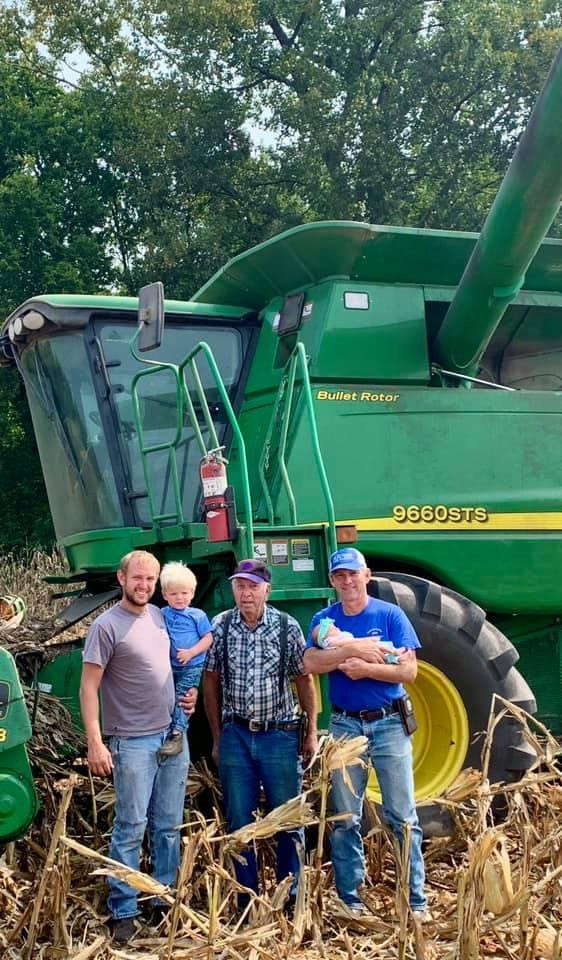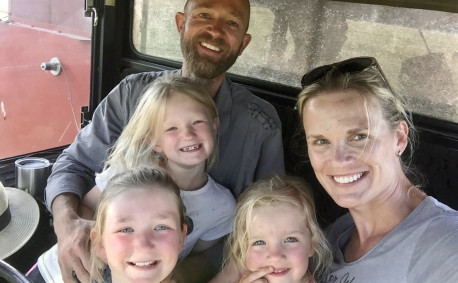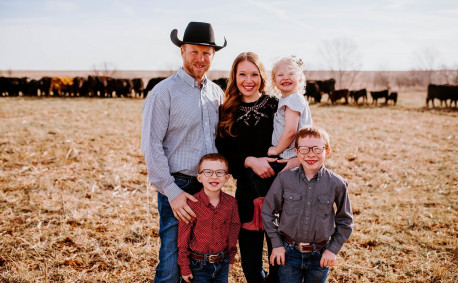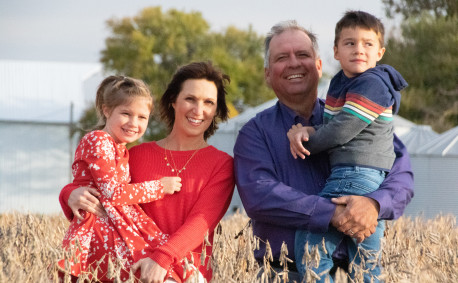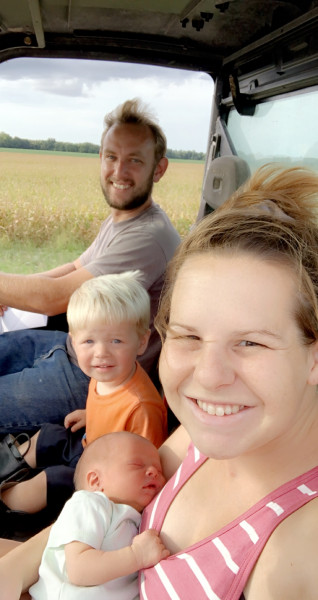Where Are They Now: Checking In with the McVey Family
In the four years that have passed since we last spoke with Bradley and Emily McVey, they’ve experienced some big changes on their farm in Wilson County.
Little Big Changes
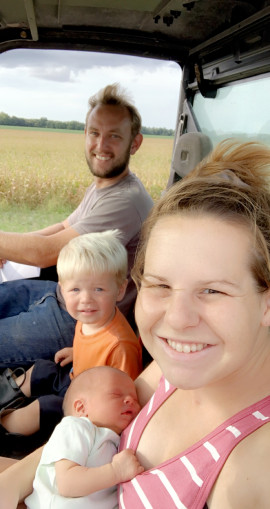 Two of those big changes are actually quite little, though: The McVeys are now a family of four with the addition of their son, Easton, and daughter, Abilene. Like many trying to maintain full-time employment and a family, the couple found it difficult to juggle farm work, childcare schedules and Emily’s teaching job. Emily left her teaching job so she could care for the growing kids — and help care for the growing farm.
Two of those big changes are actually quite little, though: The McVeys are now a family of four with the addition of their son, Easton, and daughter, Abilene. Like many trying to maintain full-time employment and a family, the couple found it difficult to juggle farm work, childcare schedules and Emily’s teaching job. Emily left her teaching job so she could care for the growing kids — and help care for the growing farm.
“Bradley was taking time away from the farm too often when daycare wasn’t available, because I used all my days for maternity leave,” Emily said. “So, it just worked out better for us — we could avoid the cost of daycare, and I was able to help out wherever he needs.”
Bradley returns the favor often, such as when Emily has a Kansas Farm Bureau board meeting in the evening or is trying to get tasks completed with kids in tow. The two admit it’s stressful trying to balance caring for young children and a farm with cattle, corn, soybeans and wheat, but agree it was the best decision they’ve made.
“It adds to our reason for choosing this life,” Emily said, bouncing baby Abilene on her knee. “We have someone to pass it down to.”
Bradley added, “My grandpa still helps me a little bit, and my dad tries to help out when he’s not working at the electric cooperative.”
Clearly, the McVey farm is a team effort. Emily can’t wait for Abilene and Easton to join the other three generations. She smiled as she described how heartwarming it is to watch Bradley’s dad and grandpa spend time with the kids.
“It’s the best thing in the world,” she said.
Farming for Future Generations
The McVeys are working hard to make that dream a reality and hand over a healthy farm to their children someday. Bradley and Emily won the 2017 Wilson County Kansas Bankers Association Conservation Award for Water Quality, awarded to them for their efforts at reducing erosion by adding cover crops and no-till practices to their fields.
“The biggest thing Brad has taught me is that there’s so much life in the soil,” Emily said. “And when you till it up, it can damage that life.”
She recalled a time Bradley dug up a plant from land that had never been tilled before, “… and underneath so many worms just fell off of it; it was amazing!”
Bradley pointed out that while there are clear benefits to skipping the tilling, you often trade one set of problems for another. So, why do it?
“The long-term benefits of no-till outweigh the struggles involved,” he said. “Long-term profitability is better, which is the reasoning behind it.”
Crops, Cattle and COVID-19
Speaking of struggles, what’s it like to run a farm during a pandemic?
Bradley and Emily laughed.
“I guess it kind of speaks to how boring our lives were before COVID-19, but things really haven’t changed much,” Bradley said.
The McVeys have always spent a lot of time at home and with immediate family, so in that sense the coronavirus didn’t put much of a hitch in their plans. That said, they’ve still had their share of headaches.
“Probably the biggest difficulty currently is just acquiring inputs due to supply chain delays and price fluctuations,” Bradley said, referring to the fertilizers and other items needed to get the fields planted and growing.
Emily hopes Kansans will soon be able to safely visit a family farm again, and will take advantage of the opportunity to learn more about where their food comes from — straight from the farmer.
“It’s a good thing people are curious about what’s going into their food and finding more information about it,” she said. “I just want to make sure people are getting their information from the right sources.”
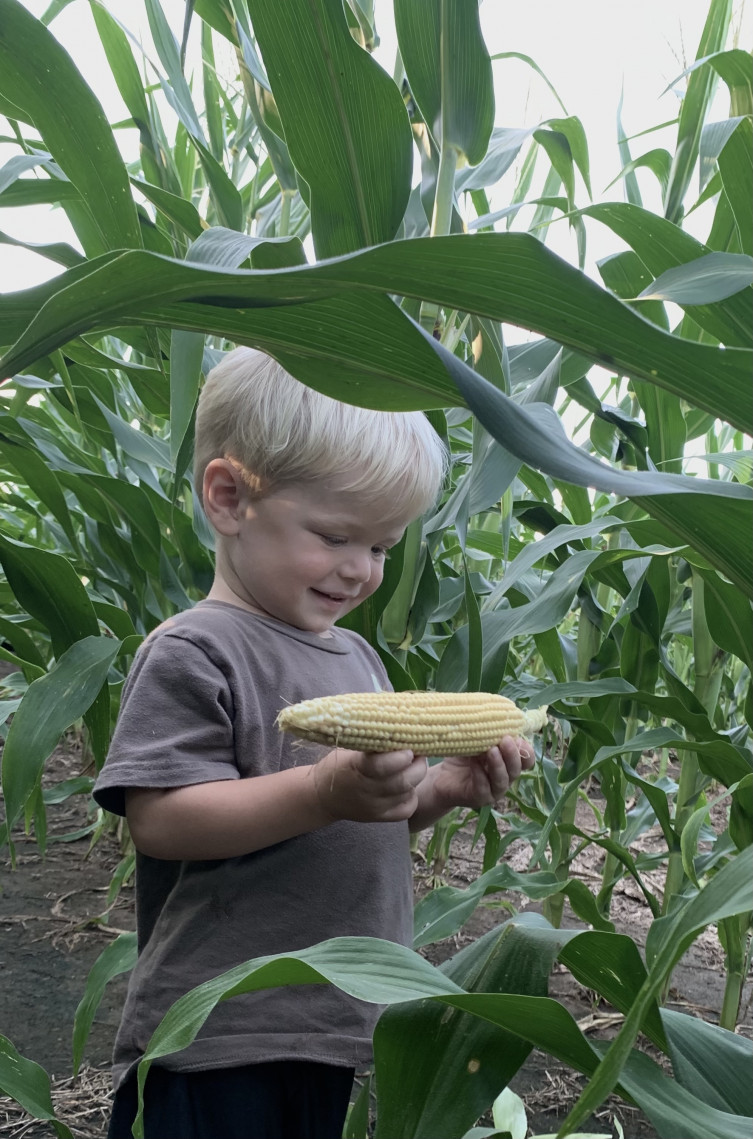 Emily believes a firsthand farm experience will show consumers that farmers aren’t trying to hurt anyone, and they eat the food they raise as well.
Emily believes a firsthand farm experience will show consumers that farmers aren’t trying to hurt anyone, and they eat the food they raise as well.
“Like most, we haven’t been eating out because of the pandemic, so we do even more home cooking,” Emily said. “I learned how to bake bread and I have a much bigger home garden than I’ve had in the past.”
Happy at Home
Life on the McVey farm is good. With the arrival of spring in Kansas, Bradley talked about drives in the Flint Hills when the weather warms. Emily can’t wait for rides on the side-by-side utility vehicle and time spent with her family outdoors.
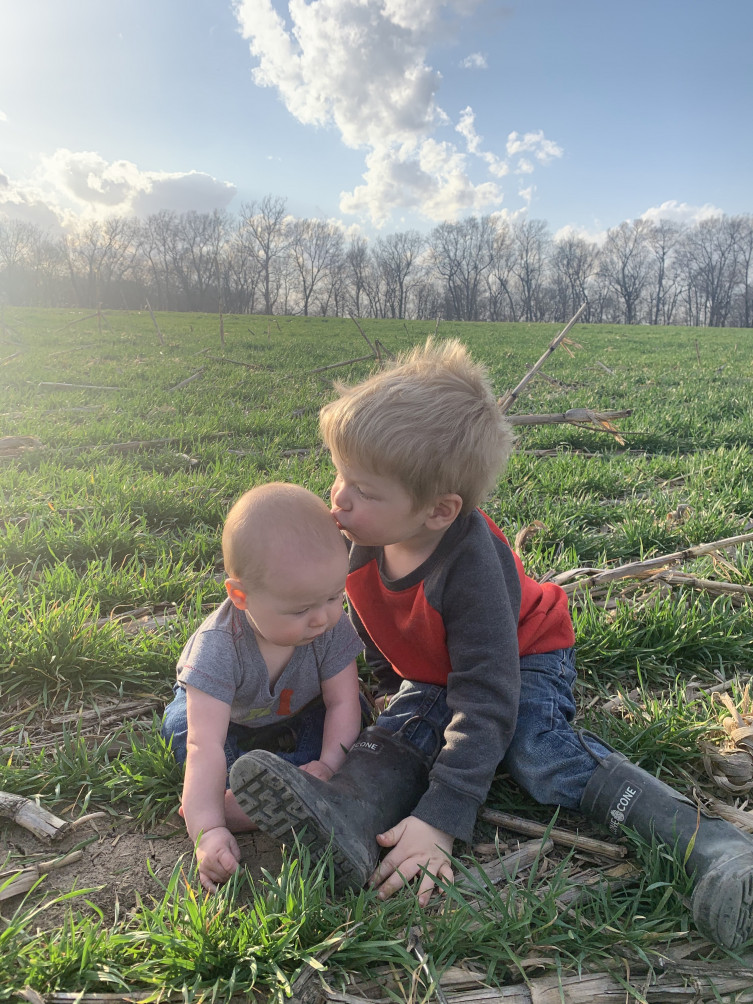 “Before I met Bradley I thought I wanted to travel the world, but I keep telling him I think he’s brainwashed me because I don’t really want to go anywhere anymore,” she said. “I just want to be on our farm and watch our kids play in the yard and watch the beautiful sunsets.”
“Before I met Bradley I thought I wanted to travel the world, but I keep telling him I think he’s brainwashed me because I don’t really want to go anywhere anymore,” she said. “I just want to be on our farm and watch our kids play in the yard and watch the beautiful sunsets.”
Check out the McVey Farms Facebook page to stay updated on this Kansas farm family.
Meet More Kansas Farm Families

